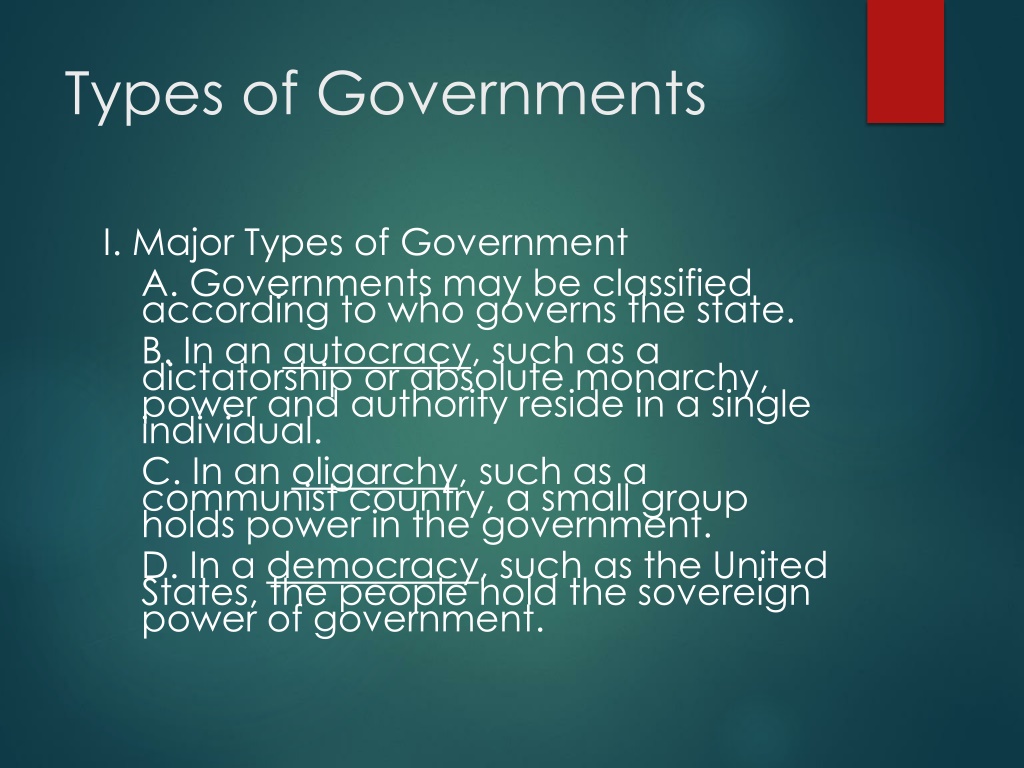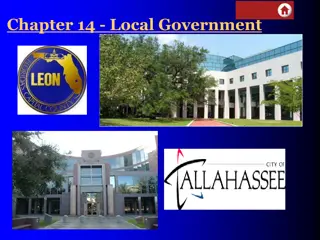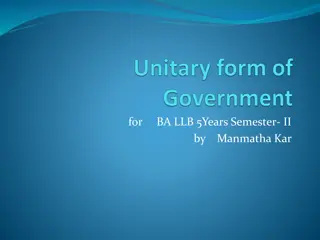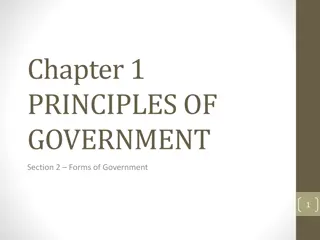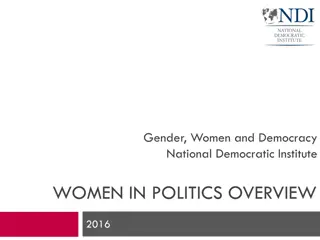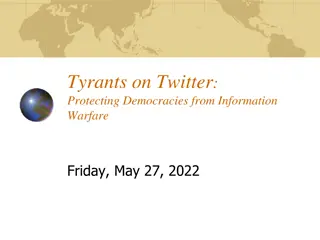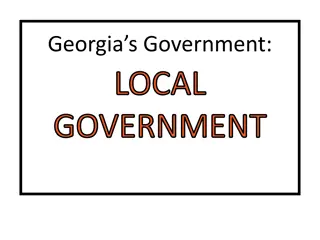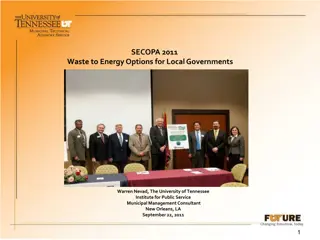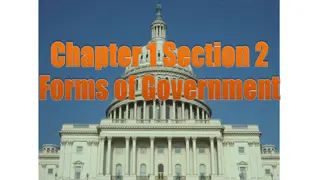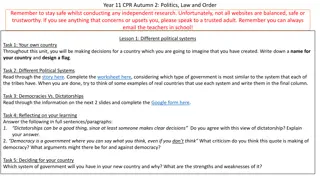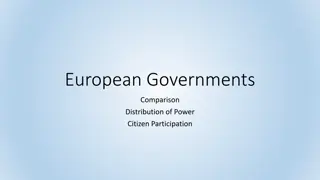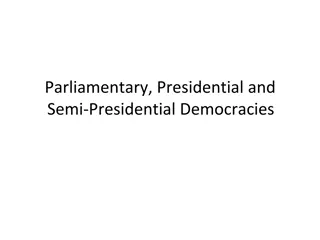Understanding Types of Governments and Democracies
Explore the major types of governments including autocracy, oligarchy, and democracy. Learn about direct and indirect democracies, as well as the characteristics and soil that nurture democracy. Discover how government functions in various societal structures and the importance of citizen participation in maintaining a strong democratic system.
Download Presentation

Please find below an Image/Link to download the presentation.
The content on the website is provided AS IS for your information and personal use only. It may not be sold, licensed, or shared on other websites without obtaining consent from the author. Download presentation by click this link. If you encounter any issues during the download, it is possible that the publisher has removed the file from their server.
E N D
Presentation Transcript
Types of Governments I. Major Types of Government A. Governments may be classified according to who governs the state. B. In an autocracy, such as a dictatorship or absolute monarchy, power and authority reside in a single individual. C. In an oligarchy, such as a communist country, a small group holds power in the government. D. In a democracy, such as the United States, the people hold the sovereign power of government.
TYPES OF DEMOCRACY Direct democracy, the people govern themselves by voting on issues as individual citizens. Direct democracy exists only in very small societies. In a indirect or representative democracy citizens elect representatives and give them the power to make the laws. A republic, voters are the source of the government s authority . We use the terms constitutional republic, democracy and republic to mean the same thing, a system of limited government where the people are the ultimate source of governmental authority.
Types of Governments, cont II. Characteristics of Democracy A. Government works to secure an equal opportunity for people to develop their own abilities. B. Government is based on majority rule through the people s elected representatives, but respects the rights of minorities. C. Government is based on free and open elections in which every citizen has the right to vote, every vote has equal weight (one man, one vote), and candidates for office can freely express their views. D. Political parties choose candidates for office, respect the voters decisions in elections, and act as loyal opposition.
Types of Governments, cont III. The Soil of Democracy A. Certain conditions or environments favor the development of the democratic system of government. B. Countries where citizens participate fully in civic life are more likely to maintain a strong democracy. C. Stable, growing economies with a large middle class help strengthen democracies. D. A public school system open to all people helps promote democracy. E. A strong civil society in which a network of voluntary organizations (including economic groups, religious groups, and political parties) exists independent of government helps democracy to flourish. F. The people accept democratic values such as individual liberty and equality for all in a social consensus.
